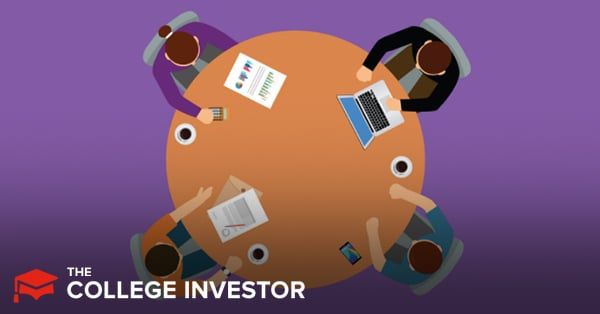
You may have recently experienced a financial hardship and are strongly considering consolidating your debts to relieve some pressure. Before bankruptcy, there are two main debt consolidation options to consider.
The first is a debt consolidation personal loan. This is often for those who still have a good credit score and debt-to-income (DTI) ratio. The second is debt consolidation via debt settlement, which is what we will cover today.
The debt settlement industry has had many companies that have been unscrupulous. In fact, the Consumer Financial Protection Bureau (CFPB) has repeatedly warned borrowers that dealing with debt settlement companies can be risky. Does that mean that all of these companies are bad and you should never work with one?
In this article, we'll look at how debt settlement works, its pros and cons, and the most commons scams and red flags of unethical debt settlement companies. Here's what you need to know.
How Debt Settlement Works
Because there will be negative side effects, you may want to consider all of your credit card debt relief options before pursuing debt settlement. If you haven’t already, you may also want to put together a budget to see whether there are expenses that can be reduced to avoid debt relief altogether.
Debt settlement (also known as debt consolidation via debt settlement) is the process of negotiating your debts for a lesser amount. It’s not to be mistaken for debt management, which is the process where a company would try to negotiate lesser interest rates or a modified repayment plan.
Understanding The Debt Settlement Process
When you enroll in a debt settlement program, the company you choose will work as the intermediary between the individual and the creditor. Here’s generally how the process works:
- 1You will create an enrollee-owned escrow bank account where all of your funds are added. This bank account is yours, but you give them access to settle accounts with your permission. You have the right to agree or decline a settlement offer.
- 2You then send one or two draft amounts to this bank account each month instead of that money going to your creditors.
- 3The company you choose will act as the primary contact between the creditors and you. Once funds accrue, the debt settlement company will generally begin negotiating with each creditor.
- 4The debt settlement company will negotiate with a creditor based on financial hardship.
- 5When a settlement is tentative, you will have the opportunity to accept or reject the plan. The plan may call for a one-time payment or monthly payments for up to 24 months. Creditors may provide better rates for one-time payments because the creditors prefer to get as much money as they get in the door immediately.
- 6You will go through this same process again and again with the debt settlement company until all of the debts have been negotiated and settled.
Once each plan has been completed, you will graduate from the program -- hopefully totally debt-free.
Your Actual Debt Settlement Results
The biggest downside to working with a debt settlement company rather than negotiating your debts yourself is that you'll have to pay fees for their service which will reduce your actual savings. Before you join any program, you should have correct expectations of how much it will cost you and how much you can save.
The savings can be significant. But it’s also possible that you won’t save much at all, especially after the fees you'll pay to the debt settlement company have been taken into account. Here's how to weigh to perform your own cost/benefit analysis.
Understanding The Costs
Debt settlement companies generally charge for their programs as percentage of enrolled debt or as a percentage of the savings they provide. The most common method is the percentage of enrolled debt. A company that charges a percentage of savings may look for those individuals who have equity in other assets that will allow them to lump together all of the settlements.
- The fee for the percentage of enrolled debt programs often ranges from 15 - 25%.
- In addition, you will often be charged an escrow account fee of $12 - $15 per month.
- You will also often have the option to get legal coverage in case of a lawsuit that ranges from $10 - $50 per month.
A debt settlement program should negotiate your debt for you if there is a lawsuit. In short, you should not need a lawyer to negotiate on debt with a lawsuit if you're already working with a debt settlement company. But if you do, you generally would pay in the range between $175 - $300 per hour in legal fees.
Below is a breakdown of three monthly scenarios to help you understand how much you will save. This scenario assumes a 50% blended debt reduction, 15% program fee, and $12.50 monthly escrow fee.
Program Length | 36 Months | 48 Months | 60 Months |
|---|---|---|---|
Debt | $30,000 | $30,000 | $30,000 |
Settled Amount | $15,000 | $15,000 | $15,000 |
Program Fees | $4,500 | $4,500 | $4,500 |
Escrow Fees | $460 | $610 | $760 |
Monthly Payments | $554.43 | $418.95 | $337.66 |
Total Paid | $19,960 | $20,110 | $20,260 |
Total Estimated Savings | $10,041 | $9,891 | $9,741 |
Below is a similar breakdown estimate, but this time the program fee is 25%. You see that you’ll end up paying around $3,000 more in fees in this scenario.
|
|
|
|
|---|---|---|---|
Debt | $30,000 | $30,000 | $30,000 |
Settled Amount | $15,000 | $15,000 | $15,000 |
Program Fees | $7,500 | $7,500 | $7,500 |
Escrow Fees | $460 | $610 | $760 |
Monthly Payments | $637.76 | $481.45 | $387.66 |
Total Paid | $22,960 | $23,110 | $23,260 |
Total Estimated Savings | $7,041 | $6,891 | $6,741 |
You may still save money when comparing your current monthly payments to the estimates above. But it may be less than originally anticipated.
Also, there are some legal groups that I have seen that charge up to 35% of enrolled debt with additional fees. In this scenario, you may want to estimate how much you’ll be paying to see whether you'll save anything at all.
Understanding The Actual Results
Let’s get granular on a specific example. Many debt settlement companies will quote a 50% debt reduction. But it may fail to mention the fees that you will be paying for its services.
To illustrate this point, let’s say you have $20,000 in debt and the company you chose negotiates for $10,000 over 36 months. The company charges you 25% of the debt enrolled as a fee. You also have to pay a $12.50 escrow account maintenance fee per month.
Let’s also say that you are "solvent" as defined by the IRS. Assuming a 25% income bracket, you only saved $2,050 ($20,000 - $10,000 - $5,000 - $2,500 (25% * Forgiven Debt) - $450).
This may still be a better scenario than the alternative. But projecting your actual results can be helpful before you join a program to compare to other debt-relief options.
Downsides Of Debt Settlement
In addition to the fees that you'll pay, here are a few more disadvantages of working with a debt settlement company.
Potential Tax Implications
If you are solvent as defined by the IRS, you may receive a 1099-C from the IRS for the forgiven debt. The creditor may submit these canceled debt savings to the IRS when the amount is forgiven is greater than $600. Now you may still save money with debt settlement, but this is an important thing to consider.
Do you always have to pay taxes on forgiven debt? Not necessarily. If you are tax insolvent as defined by the IRS, you may not have to pay taxes on forgiven debt, but this is a better question for a tax advisor
Credit Score Implications
Your credit score will undoubtedly take a tumble. How much you may ask? It often depends on your starting point. The best way to answer this question may be to use myFICO’s free credit score estimator to approximate your score drop based on your personal details.
When debt is settled, the creditor may report it as “paid in full for less than the full balance” rather than charged-off, which would hurt your score less. That said, it’s always better from a credit report perspective to get the "debt paid in full" mark.
Legal Implications
The chances of a lawsuit are probably one of the most important factors to consider before pursuing debt settlement. This is often not spoken about before starting the program. The CFPB says that working with a debt settlement company can increase your risk of being sued for your debts.
A debt settlement program will generally still be able to negotiate with a creditor even after a lawsuit although the fees are often higher which will reduce your savings. Some programs may offer a legal assistance option if you are sued. But again this will increase your total fees paid.
Beyond the monetary cost, being sued is extremely stressful and can take a huge emotional toll as well.
Common Scams And Red Flags Of Debt Settlement Companies
There are many common red flags and scams to consider before pursuing debt consolidation via debt settlement. Here are three warning signs that you'll want to watch out for.
Few Reviews On Unbiased Review Sites
When you search for specific debt settlement companies, you may find biased and unbiased review sites. Relatively unbiased review sites would include Google, Yelp, or TrustPilot because any customer can share their opinions.
However, you'll want to be more careful with editorial reviews on debt consolidation blogs and sites. The reason is that debt settlement companies may pay these review sites handsomely to secure their glowing remarks and high ratings. You'll want to do your due diligence across multiple review sites before choosing a program.
Charges Upfront Fees
Many years ago, companies would charge large upfront fees before ever settling debts. These companies would take advantage of people by charging fees and never settling a debt.
Thankfully, the Dodd-Frank Act put restrictions on upfront fees. Most debt companies will only charge the program fee after a debt is settled. That said, you may want to make sure that whichever company you're choosing follows the legal guidelines.
Doesn't Fully Analyze And Discuss Your Lawsuit Risk
There are some creditors that have a higher likelihood of suing than other creditors. When you have 10 creditors, a debt settlement company should know the lawsuit likelihood of each of your creditors based on previous data.
If 1 of the 10 debts has a high likelihood of a lawsuit, then it may be okay to enroll in a program as the debt settlement company should prioritize that debt. But if 9 out of 10 creditors have a high likelihood of a lawsuit, you may want to consider a different debt relief option.
Final Thoughts
Before pursuing debt settlement, you'll want to carefully weigh the pros and cons. When you are considering a specific firm, it may also be good to check with your state’s attorney general and consumer protection office to see if the company you're considering has any outstanding complaints.
Remember, negotiating a debt settlement
on your own could save you the most money since you won't have to deduct any fees from your savings. Also, creating a debt management plan (DMP) with a NFCC-certified credit counselor could be a better option as it could relieve your debt pressures while also preserving your credit score and steering you clear of lawsuits.
Finally, you may want to consider starting a side hustle to increase your income while you're in debt-payoff mode. If you're looking for a side hustle that can earn you extra money quickly, here are 53 ideas to consider.

Ben is a personal finance writer with a background in consulting, high-tech, and fintech startups. He also manages a small finance technology company called Ascend Finance that focuses on helping people get out of debt by providing unbiased information about different options. He enjoys covering topics such as budgeting, debt freedom techniques, and fintech. He also writes at his own blog, Saved By The Cents.
In his free time, Ben enjoys spending time with his three young daughters and exploring new hikes.
Editor: Clint Proctor Reviewed by: Chris Muller
